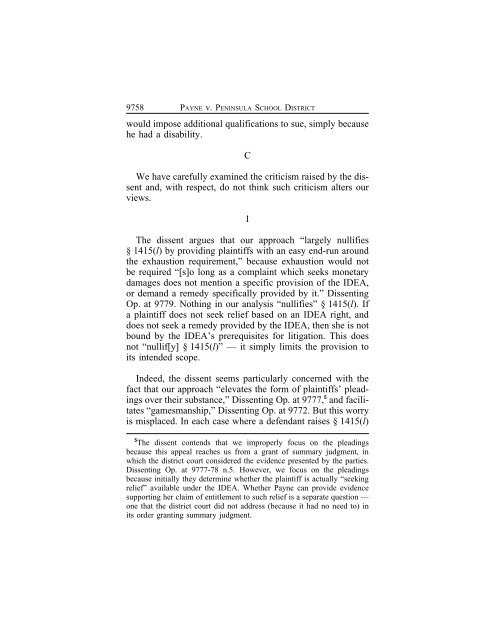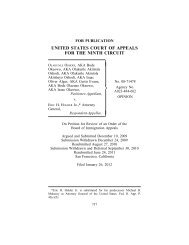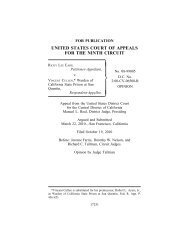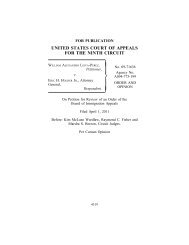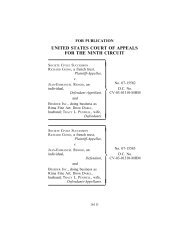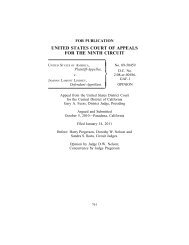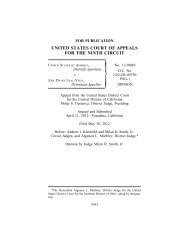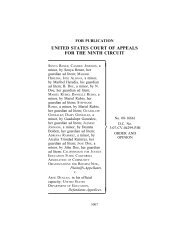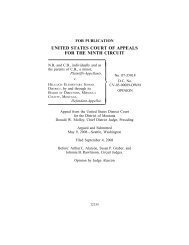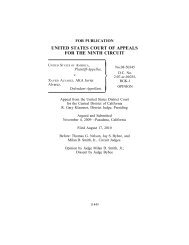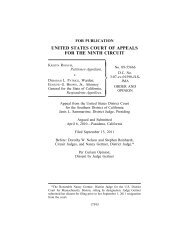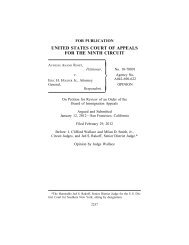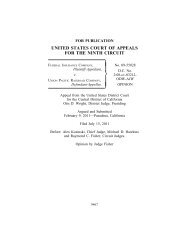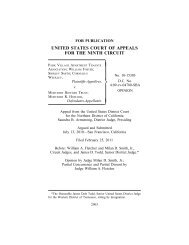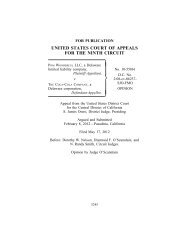UNITED STATES COURT OF APPEALS FOR THE NINTH CIRCUIT
UNITED STATES COURT OF APPEALS FOR THE NINTH CIRCUIT
UNITED STATES COURT OF APPEALS FOR THE NINTH CIRCUIT
Create successful ePaper yourself
Turn your PDF publications into a flip-book with our unique Google optimized e-Paper software.
9758 PAYNE v. PENINSULA SCHOOL DISTRICT<br />
would impose additional qualifications to sue, simply because<br />
he had a disability.<br />
C<br />
We have carefully examined the criticism raised by the dissent<br />
and, with respect, do not think such criticism alters our<br />
views.<br />
1<br />
The dissent argues that our approach “largely nullifies<br />
§ 1415(l) by providing plaintiffs with an easy end-run around<br />
the exhaustion requirement,” because exhaustion would not<br />
be required “[s]o long as a complaint which seeks monetary<br />
damages does not mention a specific provision of the IDEA,<br />
or demand a remedy specifically provided by it.” Dissenting<br />
Op. at 9779. Nothing in our analysis “nullifies” § 1415(l). If<br />
a plaintiff does not seek relief based on an IDEA right, and<br />
does not seek a remedy provided by the IDEA, then she is not<br />
bound by the IDEA’s prerequisites for litigation. This does<br />
not “nullif[y] § 1415(l)” — it simply limits the provision to<br />
its intended scope.<br />
Indeed, the dissent seems particularly concerned with the<br />
fact that our approach “elevates the form of plaintiffs’ pleadings<br />
over their substance,” Dissenting Op. at 9777, 5 and facilitates<br />
“gamesmanship,” Dissenting Op. at 9772. But this worry<br />
is misplaced. In each case where a defendant raises § 1415(l)<br />
5 The dissent contends that we improperly focus on the pleadings<br />
because this appeal reaches us from a grant of summary judgment, in<br />
which the district court considered the evidence presented by the parties.<br />
Dissenting Op. at 9777-78 n.5. However, we focus on the pleadings<br />
because initially they determine whether the plaintiff is actually “seeking<br />
relief” available under the IDEA. Whether Payne can provide evidence<br />
supporting her claim of entitlement to such relief is a separate question —<br />
one that the district court did not address (because it had no need to) in<br />
its order granting summary judgment.


